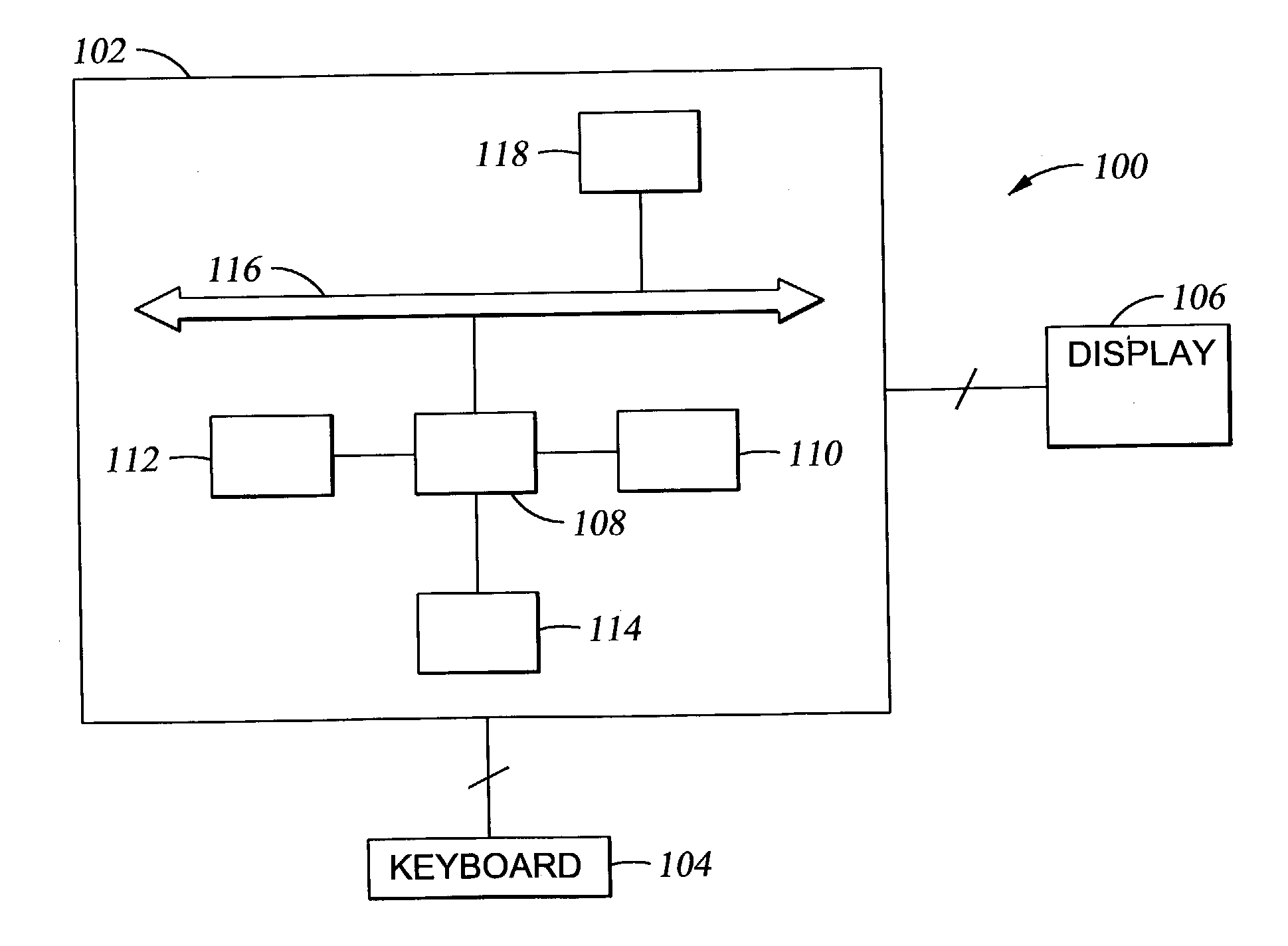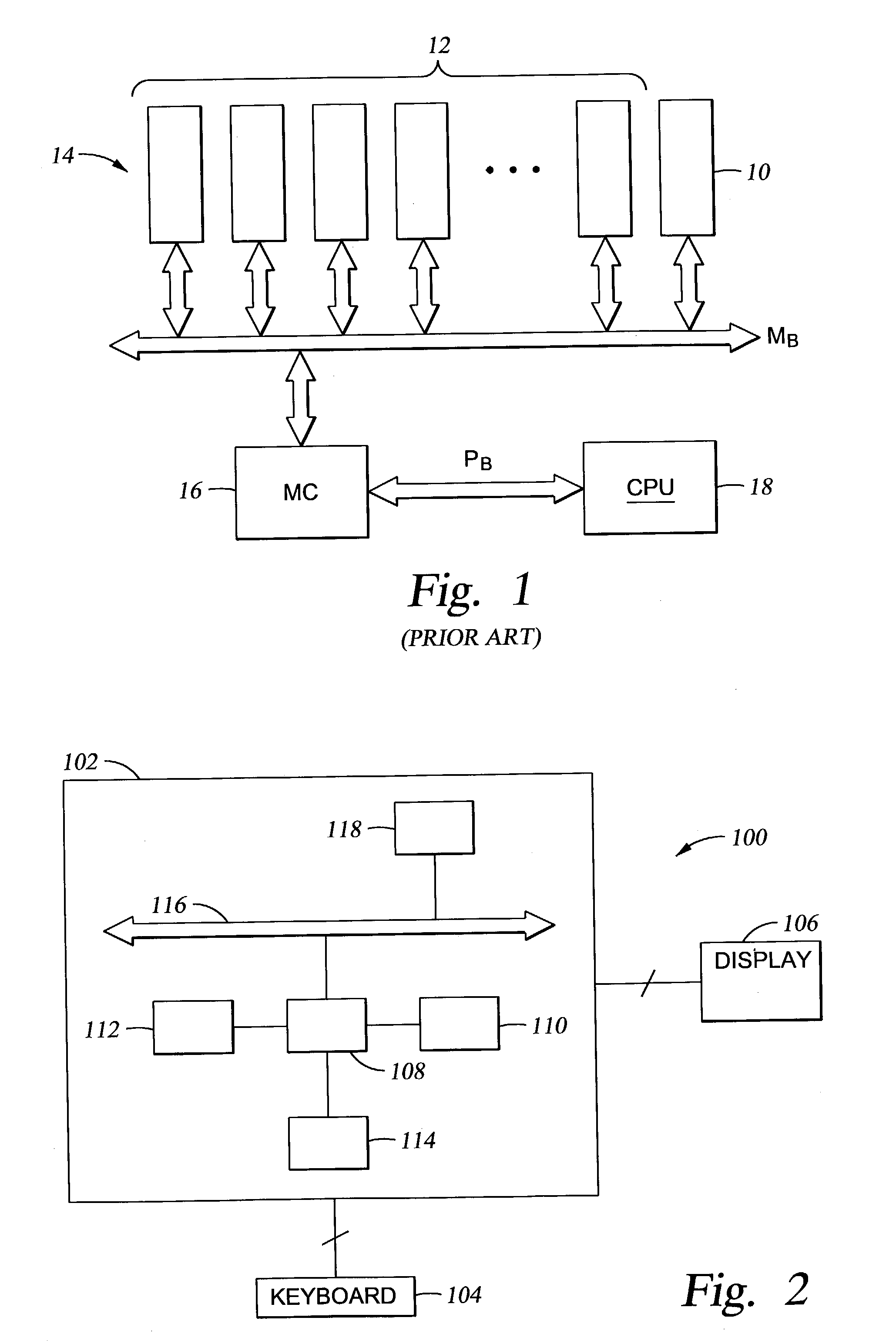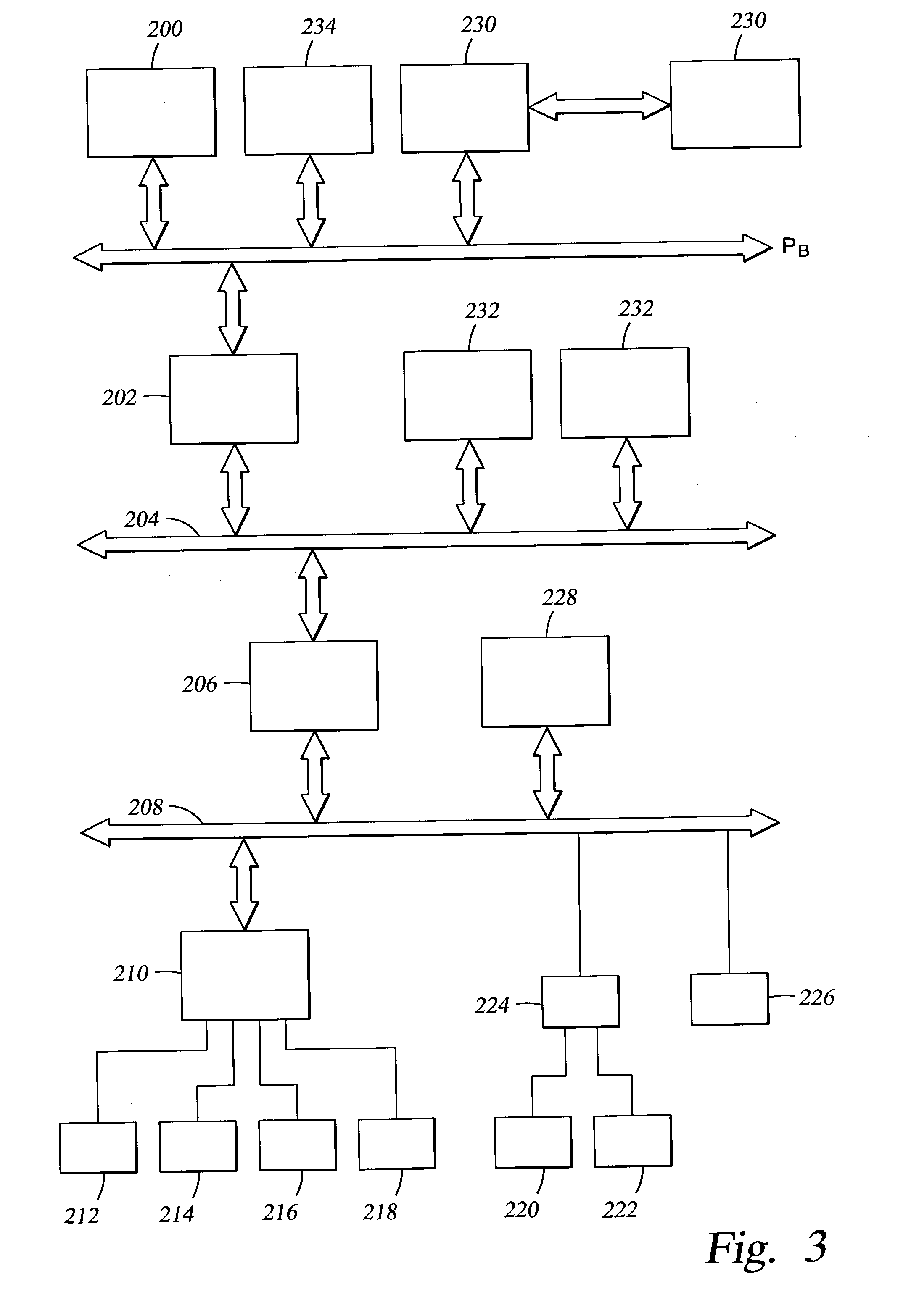Fail-over of multiple memory blocks in multiple memory modules in computer system
a technology of memory modules and memory blocks, applied in the field of failure to overwrite multiple memory blocks in multiple memory modules in computer systems, can solve problems such as fatal to the computer, data retrieved from a location in a memory module may contain an error, and computer system crash, and have to be shut down and rebooted
- Summary
- Abstract
- Description
- Claims
- Application Information
AI Technical Summary
Benefits of technology
Problems solved by technology
Method used
Image
Examples
Embodiment Construction
[0023] In order to understand the context of the present invention, a brief description of the prior art is presented. One technique for providing a fail-over system for the main memory of a computer is described in U.S. patent application Ser. No. 08 / 763,411, filed on Dec. 11, 1996, issued on Mar. 14, 2000 as U.S. Pat. No. 6,038,680, and assigned in common with the present application. This technique is illustrated in a simplified schematic in FIG. 1 wherein a standby memory module 10 is provided along with primary memory modules 12 in a memory array 14, so when it is determined to fail-over any one of the primary memory modules 12, the memory controller 16 can transfer all of the data or other digital information stored in the primary memory module 12 to the standby memory module 10 through a procedure such as a direct memory access (DMA) function. The memory controller 16 accesses the memory array 14 across a memory bus MB and communicates with the processor 18 across a processor...
PUM
 Login to View More
Login to View More Abstract
Description
Claims
Application Information
 Login to View More
Login to View More - R&D
- Intellectual Property
- Life Sciences
- Materials
- Tech Scout
- Unparalleled Data Quality
- Higher Quality Content
- 60% Fewer Hallucinations
Browse by: Latest US Patents, China's latest patents, Technical Efficacy Thesaurus, Application Domain, Technology Topic, Popular Technical Reports.
© 2025 PatSnap. All rights reserved.Legal|Privacy policy|Modern Slavery Act Transparency Statement|Sitemap|About US| Contact US: help@patsnap.com



